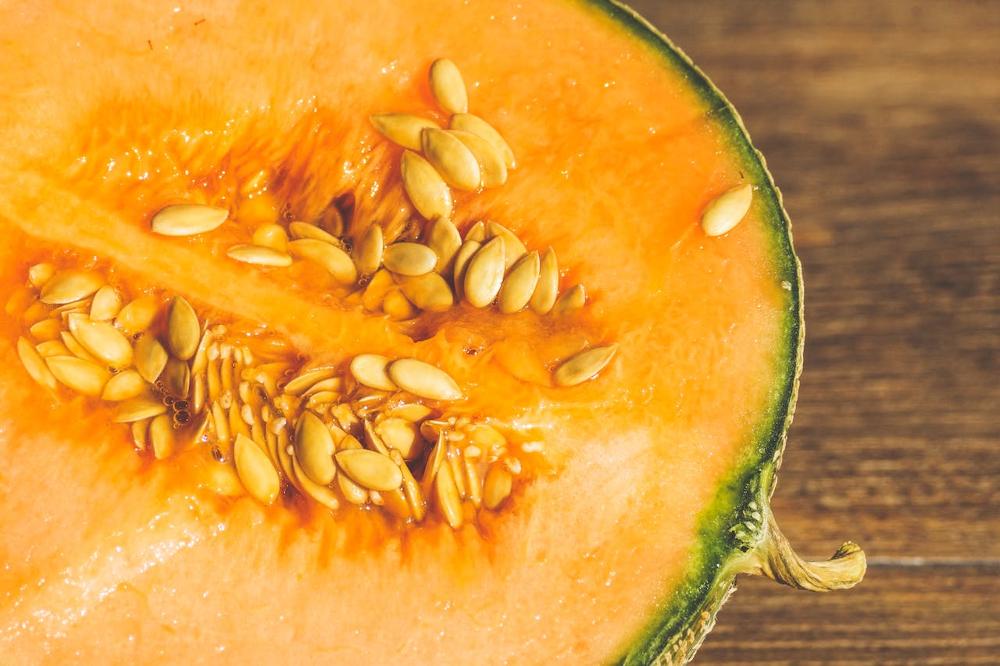For bearded dragon owners, one essential aspect is fulfilling their pets’ dietary requirements to maintain their optimal health. Within the wide variety of fruits offered to these reptiles, cantaloupes have remained a subject of curiosity.
In this article, I will extensively discuss cantaloupe consumption, its nutritional benefits, risks, and ideal portions for bearded dragons.
Let’s embark on this comprehensive journey into the world of bearded dragon nutrition.
Cantaloupes Nutritional Breakdown
Cantaloupe, also known as muskmelon, is a fruit loaded with nutritious value. High in antioxidants, vitamins, and minerals, it also offers ample hydration, thanks to its high water content.
Below are the key nutrients present in cantaloupes:
- Vitamin A: Also referred to as retinol or beta-carotene, this vital nutrient plays a crucial role in vision, tissue health, and immunity. It benefits skin health and contributes to the overall well-being of bearded dragons.
- Vitamin C: A vital antioxidant for reptiles, Vitamin C aids in enhancing the immune system, supporting the collagen synthesis required for proper development and growth, and facilitating the wound healing process.
- Potassium: An essential mineral for bearded dragons, potassium supports nerve function, muscle health, and maintains the ideal fluid balance in their bodies.
- Fiber: Cantaloupes are also an excellent source of dietary fiber, which can improve digestion in bearded dragons.
- Hydration: With their high water content, cantaloupes support hydration in bearded dragons, contributing to better digestion, kidney health, and overall vitality.
Before I go into the benefits of feeding cantaloupe to bearded dragons, let’s first address the central question: Can bearded dragons eat cantaloupes? Yes, they can. However, moderation is key.
The Golden Rule about Moderation
Cantaloupes, while packed with nutrients, should be fed to bearded dragons in moderation. The golden rule of moderation must be strictly followed due to two main reasons:
- Sugar Content: Cantaloupes are rich in natural sugar, which when consumed in excess can lead to obesity and dental issues in bearded dragons.
- Oxalate Content: Oxalates are compounds in cantaloupes that inhibit calcium absorption, a vital element for bearded dragons. A diet high in oxalates may result in Metabolic Bone Disease (MBD), affecting reptiles’ development, mobility, and overall health.
With these factors in mind, incorporating a small serving size of cantaloupe once or twice a week can safely supplement your bearded dragon’s diet.
Preparing Cantaloupe for Bearded Dragons
Feeding cantaloupe to your bearded dragon come with a careful preparation process and I will want you to follow these five straightforward steps:
- Choose Organic: Always opt for organic, fresh cantaloupes, thereby minimizing the risk of pesticide exposure.
- Wash Thoroughly: Rinse the cantaloupe under running water to remove any contaminants, dirt, or residual pesticides.
- Remove Rind and Seeds: Peel off the fruit’s outer layer and get rid of the seeds, as they pose a risk to your bearded dragon’s digestive health.
- Chop: Dice the flesh into small, manageable bite-sized cubes or thin slices, ensuring they’re roughly the size of the gap between your bearded dragon’s eyes. This reduces the chances of choking compared to feeding larger pieces.
- Serve: Add the cantaloupe pieces to your reptile’s salad, which could include other fruits and leafy greens, or offer them occasionally as a treat.
Encouraging a Varied Diet
To achieve a balanced diet, bearded dragons must consume more than just cantaloupe. Their diet plan should consist of varying fruits, veggies, insects, and supplements. The approximate dietary ratio for adult bearded dragons should be 20% insects, 20% fruits, and 60% vegetables.
Below is a list of safe food items to include in a bearded dragon’s diet:
- Safe fruits: Apple, banana, blueberries, grapes, peach, plum, strawberry, and watermelon
- Safe vegetables: Bell peppers, broccoli, carrots, cucumber, kale, squash, and zucchini
- Leafy greens: Collard greens, dandelion greens, endive, hibiscus leaves, and mustard greens
- Insects: Crickets, dubia roaches, earthworms, mealworms, phoenix worms, and superworms
Offering your bearded dragon a combination of these safe food options will ensure a well-rounded diet, meeting their nutritional needs, and keeping them engaged in their meals.
Don’t Forget Supplements
In addition to a balanced diet, bearded dragons may require vitamin and mineral supplements, primarily calcium and multivitamin powders. Dust these supplements onto their meals to support bone growth, muscle function, and overall health.
However, consult a veterinarian to tailor the supplement schedule to your bearded dragon’s age, weight, and health requirements.
To Sum It Up
Bearded dragons can enjoy cantaloupe within their diet and thanks to its nutritional riches. Yet, you as a caring pet owner must adhere to the golden rule of moderation to avoid potential health risks associated with overconsumption.
Equally important is offering a wide variety of dietary options and providing essential supplements to maintain a healthy, happy, and thriving bearded dragon.
With a keen understanding of your pet’s nutritional needs, portion control, and meal variation, you can confidently navigate the gastronomical world of your beloved bearded dragon, knowing that they are in good hands.
Goodluck!
